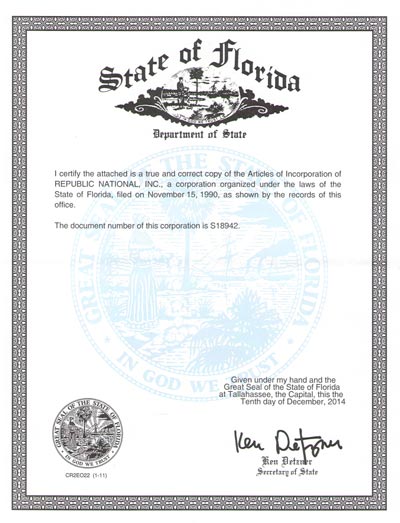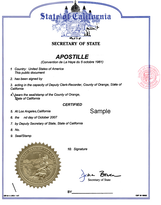Recognizing the Apostille Process: A Comprehensive Overview to International File Authentication
Browsing the intricate landscape of worldwide paper verification can be daunting without a clear understanding of the apostille process. This overview diligently describes the needed actions, from recognizing which documents need accreditation to sending them for confirmation by the Competent Authority. Grasping the significance of an apostille and acknowledging prospective challenges, such as insufficient entries and language obstacles, can considerably improve the verification trip. What exactly specifies an apostille, and why is it so critical for documents destined for Hague Convention countries? These questions develop the structure of our exploration right into this vital legal procedure.
What Is an Apostille?
An apostille is an official accreditation that confirms the credibility of a file for use in another nation. This certification, released by a marked authority in the country where the document stemmed, makes sure that the record is recognized as legitimate and genuine in the international field. The process of getting an apostille includes numerous actions, including the verification of the paper's signatures, seals, and stamps by appropriate governmental bodies.
The apostille works as a globally recognized type of verification, made possible by the Hague Convention of 1961. This treaty, formally called the Hague Convention Eliminating the Requirement of Legalisation for Foreign Public Files, standardizes the process of document accreditation among member nations. The apostille itself is a standard certification that includes certain details, such as the issuing authority, the native land, and the day of issuance.
It is very important to note that not all papers are qualified for an apostille. Typically, public documents like birth certifications, marriage licenses, court orders, and academic diplomas get approved for this certification. Private records, such as agreements and agreements, may need notarization and added actions to certify.
Importance of Apostille
Understanding what an apostille is sets the stage for appreciating its significance in international ventures. houston tx apostille. An apostille, essentially a type of certification released by an assigned authority, confirms the credibility of a document for usage in foreign countries that are signatures to the Hague Apostille Convention. This standardized process gets rid of the demand for additional legalization by consular offices or consulates, consequently streamlining international transactions
It guarantees the trustworthiness and acceptance of necessary documents-- such as birth certifications, marriage licenses, and educational diplomas-- throughout boundaries. For organizations, it promotes the smooth conduct of international profession, mergings, and acquisitions by supplying a trusted method of document verification.
Furthermore, an apostille enhances legal safety and this article compliance. Governments and institutions can with confidence depend on the authenticity of papers bearing page an apostille, alleviating the danger of fraudulence and misstatement. Hence, the apostille functions as a vital device in promoting global cooperation and count on. Its duty in fostering efficient and safe international purchases emphasizes its indispensable value in today's interconnected world.
Files That Require Apostille
When taking part in worldwide purchases or lawful matters, particular papers commonly necessitate the verification supplied by an apostille. This guarantees their recognition and acceptance in countries that are signatories to the Hague Apostille Convention. Frequently, individual papers such as copyright, marital relationship certificates, and fatality certificates call for an apostille, particularly when they are utilized for procedures like migration, marriage abroad, or global probate issues.
Educational documents are another category regularly requiring apostilles. Diplomas, records, and scholastic documents commonly require this authentication for functions such as pursuing more education, employment, or specialist licensing in an international nation look at here (houston tx apostille). This action assures that the papers are identified as legitimate and valid
Legal records, consisting of powers of attorney, sworn statements, and court orders, likewise generally demand apostilles. Company documents such as certificates of unification, laws, and industrial agreements may require an apostille to promote international trade, develop foreign branches, or involve in cross-border lawful procedures.
Steps to Acquire an Apostille

Getting an apostille includes a multi-step process that makes certain the credibility and approval of your documents in international nations. The preliminary step is determining which documents require an apostille. houston tx apostille. Usual files include copyright, marriage licenses, scholastic transcripts, and corporate files
When identified, the record should be certified by the ideal providing authority. After certification, the file should be sent to the marked Competent Authority in the record's country of beginning.
The submission process usually requires a completed application, the initial paper, and a charge. Some jurisdictions may supply the alternative of expedited processing for an extra charge. Upon effective verification, the Competent Authority will fasten the apostille certification to the record, thus validating its authenticity.
Common Challenges and Solutions
Navigating the apostille procedure can present numerous usual challenges that, otherwise effectively dealt with, might postpone or complicate document authentication. One frequent concern is the entry of inaccurate or insufficient files. Each nation has certain demands for the kinds of documents that can be apostilled, and any type of variance from these can lead to rejection. Making sure that all documents are precise and full before submission is vital.
An additional usual difficulty is recognizing the diverse processing times. Processing times can vary substantially in between nations and also between various areas within the very same country. It is necessary to represent these variants when intending the apostille process to stay clear of unforeseen hold-ups.
Additionally, language barriers can pose significant barriers. Files in a foreign language typically call for qualified translations, and any kind of errors in translation can bring about more problems. Engaging a professional translation solution can reduce this threat.

Conclusion
Mastering the apostille procedure dramatically boosts the effectiveness of international document verification. By understanding the necessity of identifying and accrediting needed papers, and navigating the submission to the Competent Authority, the procedure becomes extra convenient.